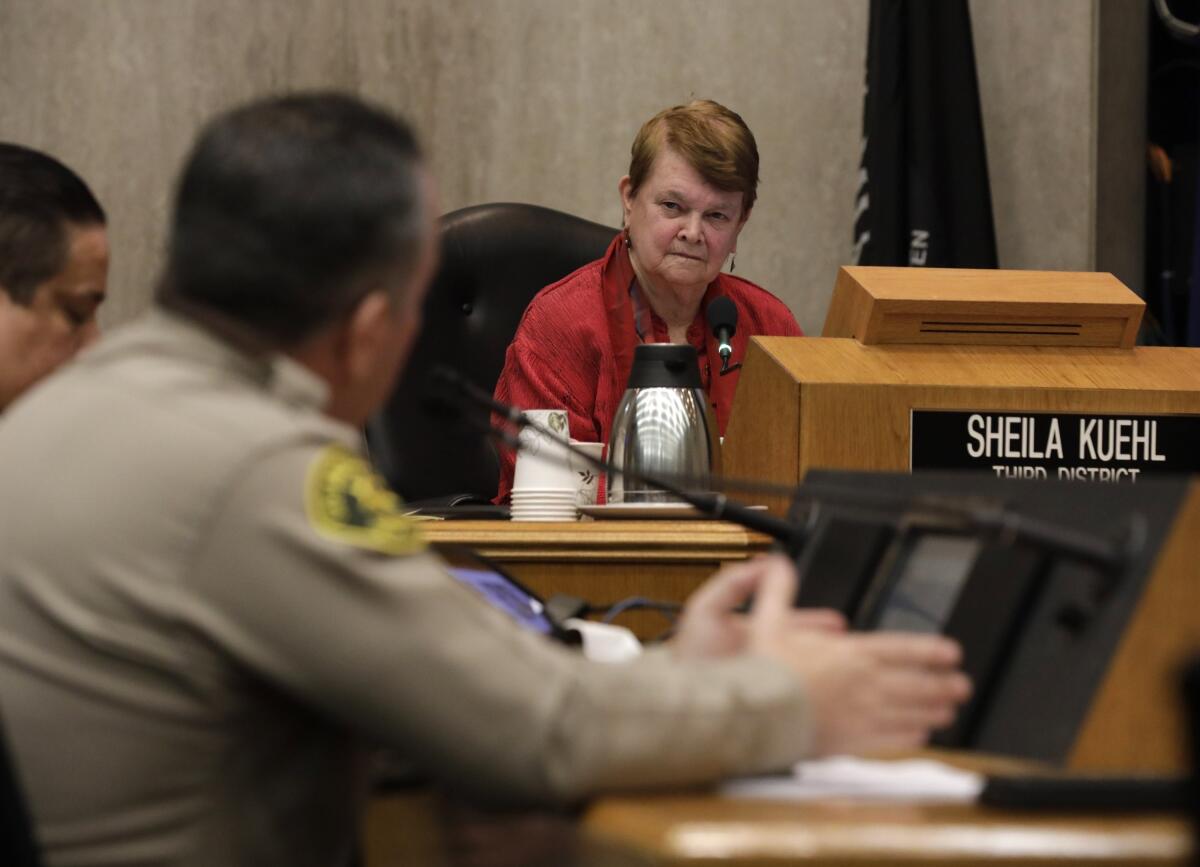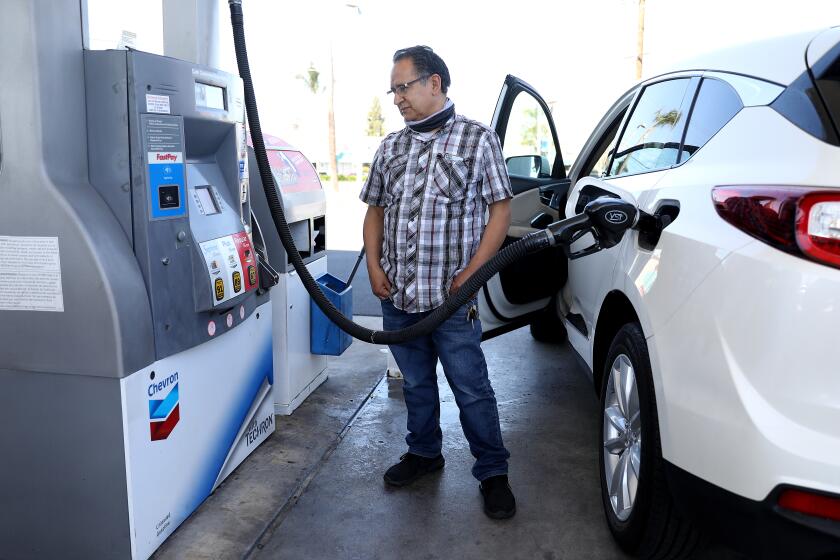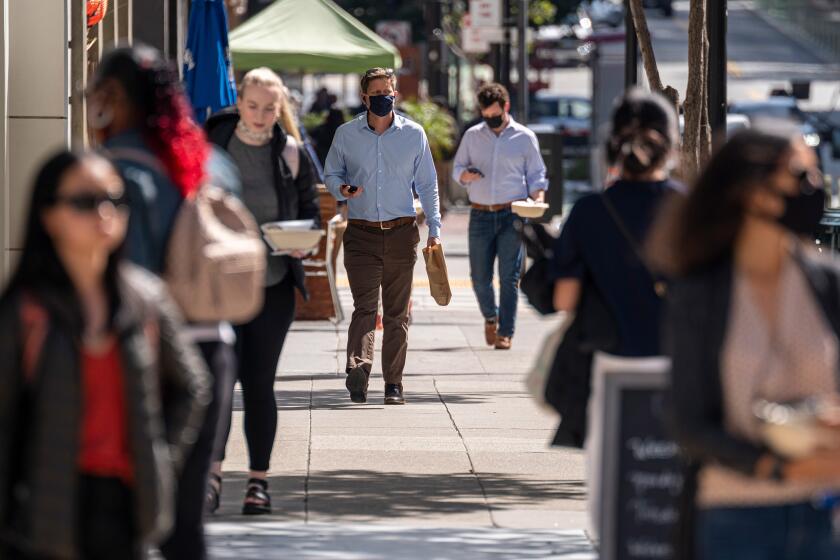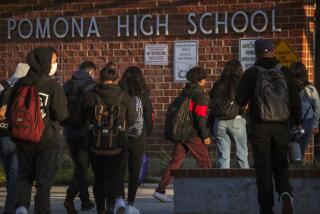Today is the last day to apply for $1,000 a month from L.A. County. Here’s how

- Share via
If you live in a poor or working-class neighborhood in Los Angeles County and the pandemic has hurt your pocketbook, you may be eligible to receive $1,000 a month for three years with no strings attached. But if you’re interested, you need to act today — it’s the last day to submit an application.
The grants are being made available through Breathe, the county’s experiment with “guaranteed income” — a cash-based approach to fighting poverty. Conducted in partnership with the nonprofit Strength Based Community Change of Wilmington and the University of Pennsylvania’s Center for Guaranteed Income Research, the program is funded with federal COVID-19 relief dollars.
The county started accepting applications on March 31, but only for a two-week period. To be considered, you must start filling out your application before the end of the day today.
Support for governments providing a financial floor for their residents has been around at least since the early 1500s, when Thomas More outlined one version of it in “Utopia.” Over the past few decades, communities around the world have tried out different flavors of guaranteed income, with more experiments launching seemingly every month.
There also appears to be a solid base of support for the idea in L.A. County, judging by the latest Los Angeles Public Opinion Survey by Loyola Marymount University. Almost two-thirds of the 2,000 county residents surveyed supported the county’s guaranteed income program, although the support was strongest among people under 45 years old and weakest among people 65 and older.
The federal government launched the country’s largest guaranteed income program last year when it expanded the federal child tax credit and paid it to eligible parents on a monthly basis. The program helped lift millions of children out of poverty, but Congress allowed it to expire at the end of December. Researchers at Columbia University found that in the following month, the number of impoverished children increased by 3.7 million.
What sets these programs apart from welfare, food stamps and other safety net programs is that the recipients can use the cash as they see fit. That’s important because people know best what they need, and every household’s needs are different, said Stacia West, founding director of the Center for Guaranteed Income Research.
Here are more details about the county’s program and the application process.
Totally Worth It
Be your money's boss! Learn how to make a budget and take control of your finances with this eight-week newsletter course.
You may occasionally receive promotional content from the Los Angeles Times.
Who is eligible?
Carrie Miller, director of the county’s Poverty Alleviation Initiative, said there are five requirements to be eligible for Breathe:
- Age: You’re at least 18.
- Neighborhood: You live in an L.A. County neighborhood with an area median household income no higher than the county’s. Don’t worry, you don’t have to know the statistics! Just check the map on the Breathe website.
- Income: If you’re living alone, your income is no higher than the area median. If you are in a household with two or more people, your income is no more than 20% above the county median. Again, the Breathe website will help you figure that one out, but to give you an idea, the cutoff is $56,000 for single individuals and $96,000 for a family of four.
- Pandemic effects: You need to have suffered financial harm, which Miller defined as “any financial impact someone might have experienced” as a result of COVID-19. Examples include a lost job, reduced income, higher child care costs because of school closures and increased healthcare expenses.
- Participation: You’re not taking part in any other public guaranteed income program, such as the ones in West Hollywood or the city of Los Angeles.
The program is open to noncitizens as long as they reside in the county. “We will not check legal status, as that’s not a requirement of the program,” Miller said.
Applicants will have to provide a boatload of additional information about themselves for the sake of the research being conducted (more on that in a bit), but Miller emphasized that none of those data points will matter when the participants are chosen. Instead, every applicant who checks the five boxes listed above will be put into a pool, and then the 1,000 participants will be chosen at random.
Gas prices are high across California, and it’s unclear when prices will go down. But, there are ways to save money on gas. Here are some tips.
How to apply
The application form is available online at the county’s website, and Miller said it can be completed on a cellphone if you don’t have access to a computer. You can also get help filling out the application at more than 50 centers across the county; if you can’t access the list online, you can call the hotline that Strength Based Community Change set up for the program at (213) 342-1003. The hotline will operate from 8 a.m. to 8 p.m., said Ely Fournier, director of economic vitality at SBCC.
Last-minute applicants will have the same chance of being selected as people who apply early, the county said when announcing the program.
Reflecting the diversity of L.A. County, the application is available in more than 100 languages.
On the application, you’ll have to answer some questions about your income, but you won’t have to back that up with paperwork at this point, Miller said. Instead, the county will verify your eligibility only if you’re selected to participate in the program.
Be forewarned, though — the application is long and will take about an hour to complete, West said. Why? Researchers need the information to get a baseline reading of the applicants’ situation before they enter the program, West said. That way, they can measure how much the program helps them and in what ways their lives change.
Miller cautioned that “there are some sensitive questions and some questions that may make people a little uncomfortable to answer.” For example, applicants will be asked personal questions about their physical and mental health. But your answers won’t affect whether you’re selected for the program; they’re just to help researchers assess how people are doing before the program begins. And unlike the city of Los Angeles, the county won’t ask applicants about their experience with domestic violence.
West said the survey responses would be stored without the applicants’ names attached to protect their anonymity. Only the researchers would have access to the identities, she said.
Affordable housing, such as Section 8 and public housing, is available, but it often requires navigating applications and government agencies. Here’s what you need to know.
How will it work?
Miller said it will take six to eight weeks to select participants, and so the monthly grants probably will start in the summer. The county will distribute the money by giving participants a prepaid debit card that will be reloaded monthly, which means people who don’t have bank accounts can still participate. It also creates a detailed record for researchers of how participants spend the grants.
That form of payment raises a few issues, though — it can be costly to use the card to withdraw cash from some ATMs, and participants with checking accounts might prefer the flexibility offered by direct deposit.
Unlike some other programs, the county won’t proactively try to match participants with services, such as career counseling, education or job training. Instead, Miller said, they will be offered the same support that’s available to all county residents.
Palm Springs is allocating $200,000 for a guaranteed income pilot program to help transgender and gender-nonconforming people in the city.
What are the researchers studying?
It’s well established that having an unpredictable income for a lengthy period of time can be bad for your physical and mental health. For example, West said, this sort of volatility can lead to high blood pressure, diabetes and lung problems.
The county is examining whether it can improve health and well-being by providing households a reliable bit of extra income for three years, West said. It’s also measuring whether the program leads to increases in savings, reductions in debt and improved ability to manage emergency expenses, she added, as well as its effect on parenting and household dynamics.
As part of that research, participants will be asked to respond to an optional survey every six months that will check on their “physical health, mental health, income volatility, housing stability, spending, consumption, employment, education, family dynamics and parenting, stress and coping, hope and mattering, household food security, and COVID-19 variables,” the county’s research plan states.
In addition to the 1,000 participants chosen by the county, West said, her center will invite applicants who weren’t selected to join a control group of 1,200 households. To encourage these folks to complete the surveys, the program will do outreach and provide them a $30 gift card, the same compensation that participants receive. West said that control groups in other programs have generally wanted to take part, explaining, “As the world of guaranteed income grows larger, people want to contribute in some way. They feel like, ‘Wow, I can actually have a say. Like, my voice actually matters in the way we construct programs.’”
Echoing other researchers, West said there’s no need to keep researching whether it’s wise to give money without conditions to residents in need. “Years of social science data” show that “the lowest income people make the best decisions with their money,” she said, adding, “There’s no way you can be wealthy and irresponsible on $1,000 a month.”
The bill, AB 2932, would change the definition of a workweek from 40 hours to 32 hours for companies with more than 500 employees.
More to Read
Sign up for Essential California
The most important California stories and recommendations in your inbox every morning.
You may occasionally receive promotional content from the Los Angeles Times.















